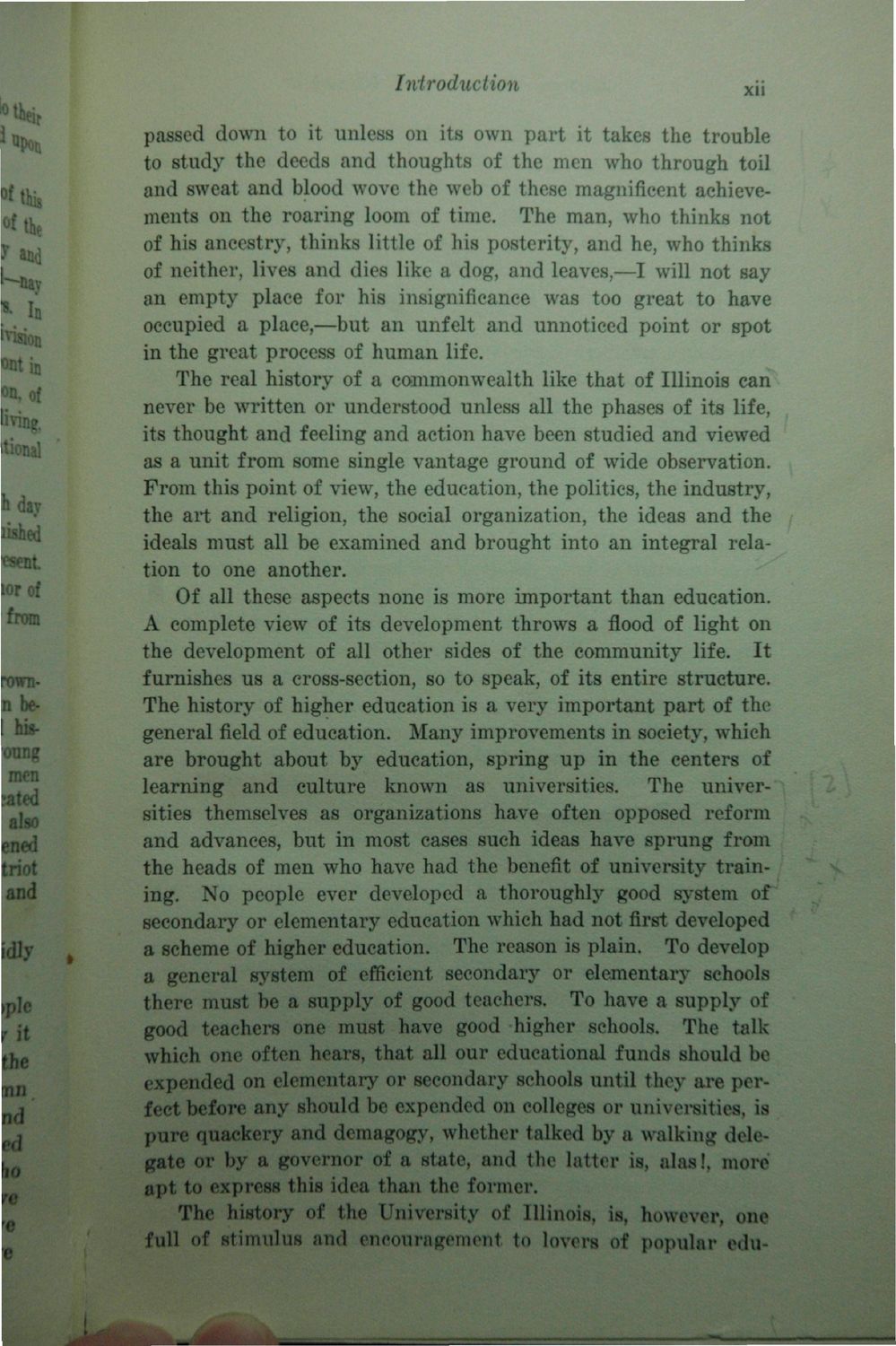| |
| |
Caption: Book - History of the University (Powell)
This is a reduced-resolution page image for fast online browsing.

EXTRACTED TEXT FROM PAGE:
Introduction xu passed down to it unless on its own part it takes the trouble to study the deeds and thoughts of the men who through toil and sweat and blood wove the web of these magnificent achievements on the roaring loom of time. The man, who thinks not of his ancestry, thinks little of his posterity, and he, who thinks of neither, lives and dies like a dog, and leaves,—I will not say an empty place for his insignificance was too great to have occupied a place,—but an unfelt and unnoticed point or spot in the great process of human life. The real history of a commonwealth like that of Illinois can never be written or understood unless all the phases of its life, its thought and feeling and action have been studied and viewed as a unit from some single vantage ground of wide observation. From this point of view, the education, the politics, the industry, the art and religion, the social organization, the ideas and the ideals must all be examined and brought into an integral relation to one another. Of all these aspects none is more important than education. A complete view of its development throws a flood of light on the development of all other sides of the community life. It furnishes us a cross-section, so to speak, of its entire structure. The history of higher education is a very important part of the general field of education. Many improvements in society, which are brought about by education, spring up in the centers of learning and culture known as universities. The universities themselves as organizations have often opposed reform and advances, but in most cases such ideas have sprung from the heads of men who have had the benefit of university training. No people ever developed a thoroughly good system of secondary or elementary education which had not first developed a scheme of higher education. The reason is plain. To develop a general system of efficient secondary or elementary schools there must be a supply of good teachers. To have a supply of good teachers one must have good higher schools. The talk which one often hears, that all our educational funds should be expended on elementary or secondary schools until they are perfect before any should be expended on colleges or universities, is pure quackery and demagogy, whether talked by a walking delegate or by a governor of a state, and the latter is, alas!, more apt to express this idea than the former. The history of the University of Illinois, is, however, one full of stimulus and encouragement to lovers of popular edit-
| |